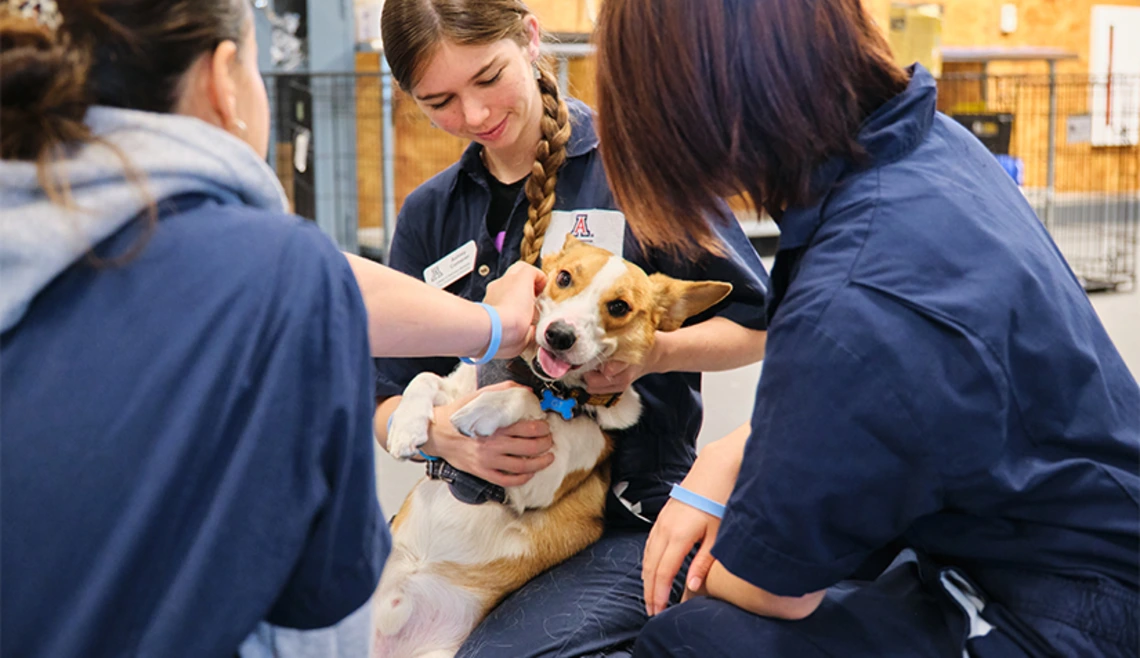Experiential Learning

Focus on Learning Material, Not the Grade
Experiential learning at our institution is designed to cultivate professional competence and real-world readiness, moving beyond a narrow focus on grades or fostering a competitive student environment. Our approach prioritizes hands-on experiences, collaborative problem-solving, and the development of essential skills that prepare students for the demands of their future careers. By emphasizing professional education, we create a supportive atmosphere where students are encouraged to learn from one another, engage deeply with their field, and develop into confident, compassionate professionals. This commitment ensures that every learning opportunity is meaningful, practical, and centered on student success in the veterinary profession.
Collaborative Learning
Collaborative learning is a central, evidence-based teaching feature of our curriculum, emphasizing small-group, case-based learning and team-based learning (TBL) environments. Students work together in structured groups to solve complex clinical cases, engaging in active discussions that require them to negotiate perspectives, reach consensus, and apply clinical reasoning skills. Instructional design plays a critical role in shaping these collaborative experiences by fostering multiple viewpoints, encouraging constructive disagreement, and adjusting the level of difficulty and consensus required by each task. This approach not only deepens students’ understanding of veterinary concepts but also helps them develop essential professional skills such as communication, conflict management, and teamwork.
Learn About Student Engagement
Flipped Classroom
Our flipped classroom model shifts traditional learning by having students review instructional materials—such as readings, recorded lectures, or multimedia content—before class, encouraging deeper understanding, teamwork, and the integration of core knowledge for clinical use. This method allows class time to focus on active, hands-on learning, including interactive case discussions, clinical scenarios, and skills labs that use realistic models, simulations, and live animals. Faculty guide students through complex problem-solving and clinical reasoning, rather than giving lectures, helping students become "day-one-ready" practitioners by prompting them to apply knowledge in real-world situations from the start.
Relationship with Faculty
Engagement with the faculty is both dynamic and collaborative, fostering a vibrant environment for academic and professional growth. Through regular meetings, interdisciplinary workshops, and joint research initiatives, our faculty can build strong relationships with students that enhance both teaching and learning experiences. Faculty members are approachable and deeply invested in student success, offering mentorship, guidance, and real-world insights that enrich the curriculum. This ongoing partnership not only supports innovative educational practices but also contributes to the advancement of veterinary medicine through shared expertise and a commitment to excellence.
Curriculum Focused On Success
The Arizona College of Veterinary Medicine redefines veterinary education with a dynamic three-year curriculum built on proven teaching methods and active student engagement.
